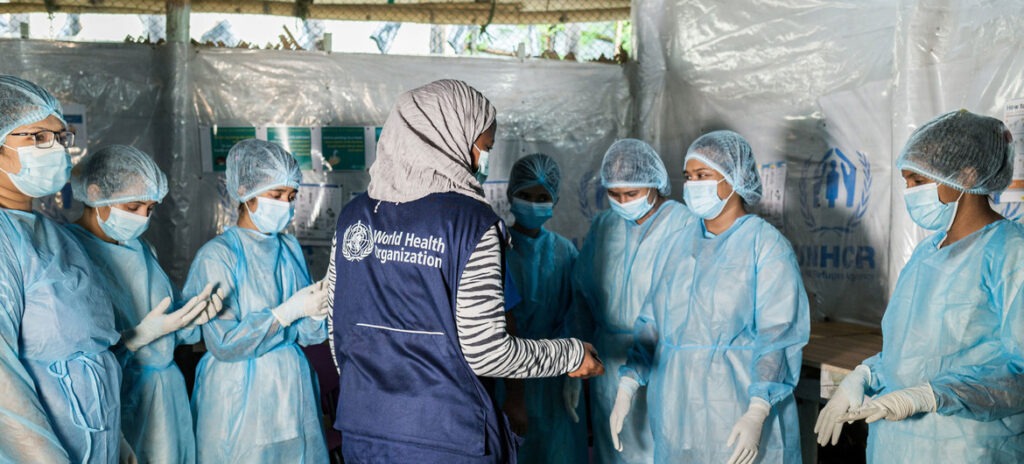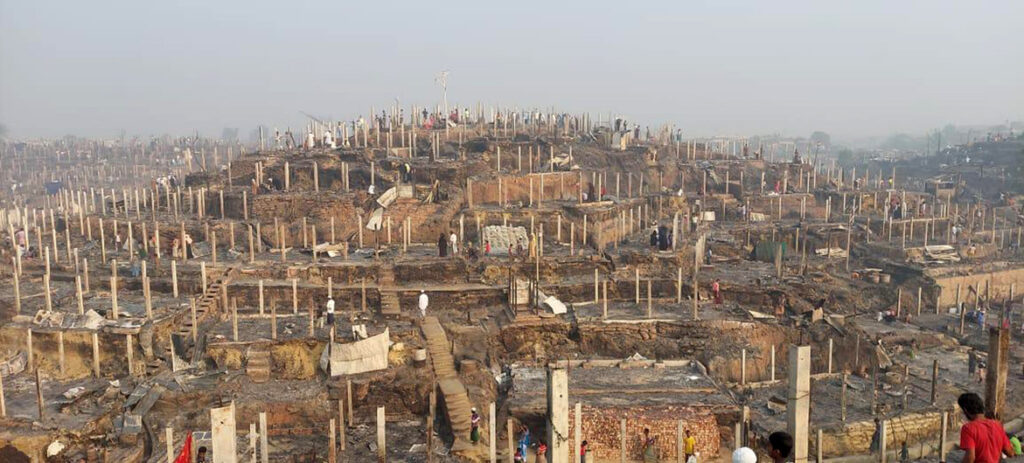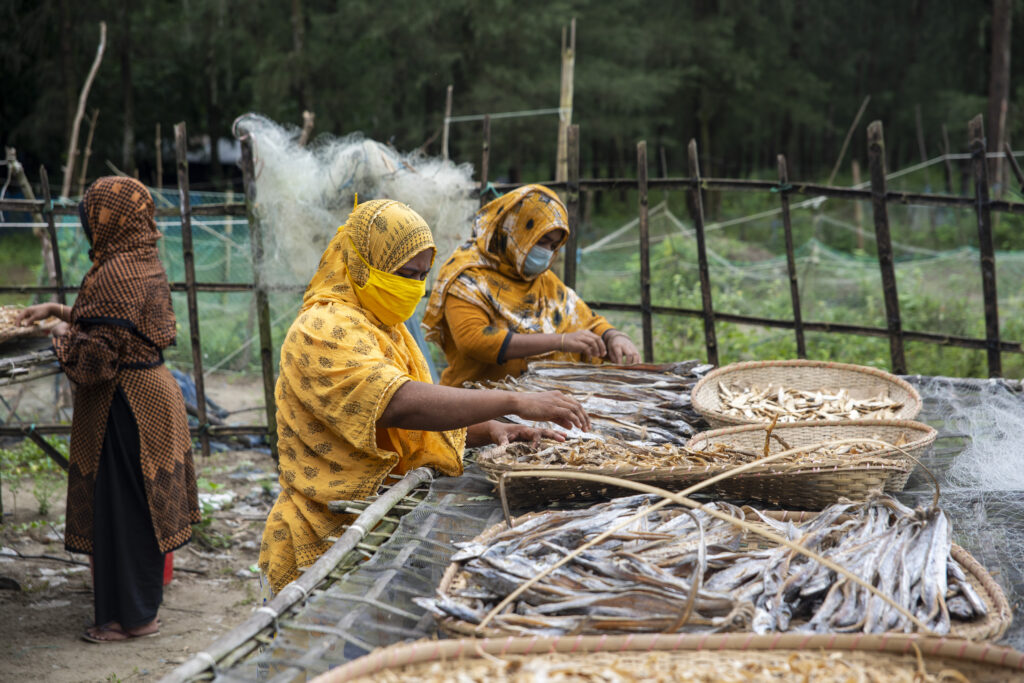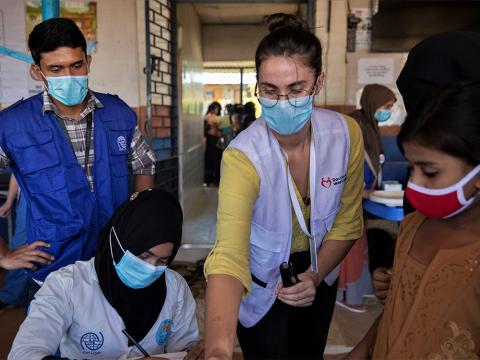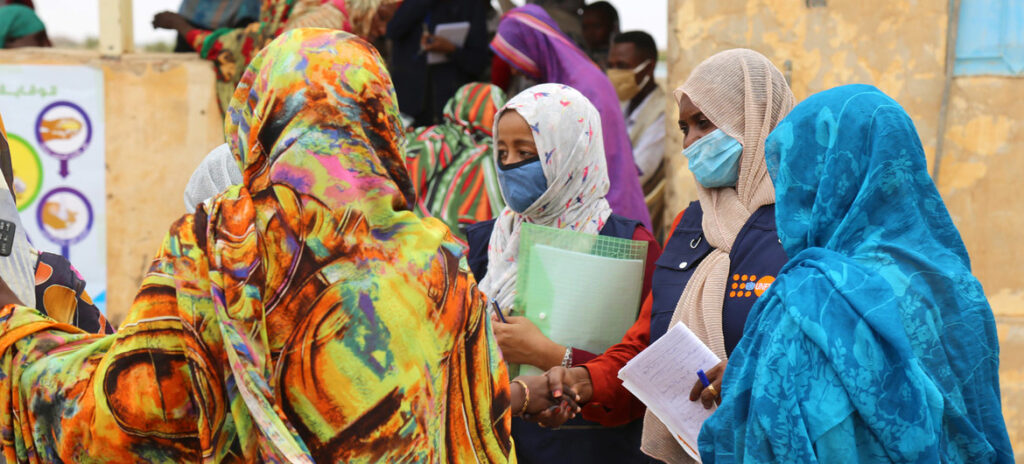More than 4,000 Rohingyas living in Cox’s Bazar refugee camps in Bangladesh have received their first COVID-19 vaccine shots, as part of a national inoculation drive to curb the spread of the deadly coronavirus, the UN refugee agency (UNHCR) said on Wednesday.
MoreCox’s Bazar, home to 900,000 Rohingya refugees, narrowly avoided Cyclone Yaas last week – the Bay of Bengal’s second major storm of the cyclone season that went on to do over USD 2 billion damage elsewhere in Bangladesh and India.
MoreUnited Nations humanitarian personnel are on the ground evacuating tens of thousands of Rohingya refugees, after a devastating fire tore through the Kutupalong camp, in Cox’s Bazar, Bangladesh, the world’s largest refugee camp.
MoreThe COVID-19 pandemic has hit Bangladesh harder than any tropical cyclone. Instead of uprooting trees and hurling powerful tides from an angry sea, what’s been uprooted are entire livelihoods—as well as the families trying to survive in one of the world’s most crowded countries.
MoreWhilst the global economy has taken a battering during the COVID-19 pandemic, online commerce has thrived. A UN-supported initiative is helping refugees and migrants around the world to access the tools and customers they need to build their businesses and improve their livelihoods.
MoreHealth emergencies take place daily in Cox’s Bazar district and nearby refugee camps, affecting people of all ages and spanning all types of injuries and infections, heart attacks and strokes, pregnancy-related complications and chronic diseases.
MoreAs COVID-19 continues to disproportionately impact women and girls hit by multiple humanitarian crises, the UN sexual and reproductive health agency appealed on Monday for $818 million to provide 54 million women and youth with essential and life-saving services throughout 2021.
MorePrior to the COVID-19 pandemic, the risk of Gender-based Violence (GBV) for Rohingya and Bangladeshi women and girls already was alarmingly high in Cox´s Bazar, Bangladesh.
More
